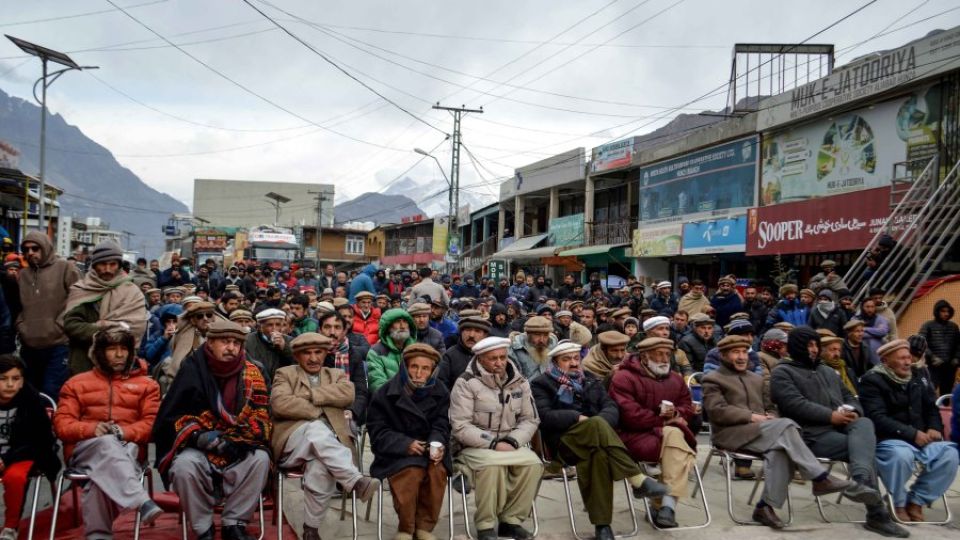January 7, 2025
ISLAMABAD – A protest sit-in against the power crisis in Hunza district’s Aliabad area continued for the fourth consecutive day on Monday with the Karakoram Highway (KKH) remaining blocked, paralysing Pakistan-China tourism and trade.
The protest has been launched on the call of the Hunza Awami Action Committee and the All Parties Traders Association.
While the government has failed to find any solution despite its efforts, Gilgit-Baltistan Chamber of Commerce and Industry President Imran Ali said that 700 trucks, including vehicles loaded with imports and exports, have been stuck at the China-Pakistan Economic Corridor (CPEC) dry port due to the sit-in.
“Trucks carrying goods from China are stuck at the dry port, while Pakistani trucks meant to transport goods within the country are stranded at different places within Hunza,” Ali said.
Earlier, government offers were rejected and residents had announced to continue protesting till the resolution of the issue. They had spent Saturday night at their protest camp despite the freezing temperatures and announced to continue it until the government fulfilled their demand.
On Sunday, a protest rally was also held in Ganish village, while participants later joined the sit-in.
According to a statement issued by the Hunza deputy commissioner on Sunday, a meeting was held at his office with representatives of the protesters.
The deputy commissioner assured the protesters that the Gilgit Baltistan government would immediately take measures to improve the electricity supply to Hunza.
However, the protesters rejected the offer and termed it a “fake promise,” saying such promises were also made in the past but never implemented.
Ali continued that traders were facing serious problems due to the situation.
“The machinery to remove snow from the border has also been stuck on the way, and the process of restoring the border has not even started,” he said.
“In such a situation, how will vehicles travel between both countries?”
The Chamber of Commerce president further said that the continuous closure of the highway in Hunza-Aliabad had affected tourism activities.
According to residents, many tourists going to the region to enjoy the snowfall at the Pak-China border were also returning. The customs authorities also confirmed that trucks loaded with imported goods were stuck at the CPEC dry port.
The deputy commissioner had earlier assured the protesters that the GB government would immediately take measures to improve the electricity supply to Hunza.
For this purpose, a new power transmission line would be laid from Jaglote Guro in Gilgit to central Hunza. This transmission line will provide Hunza with 1.5 megawatts of electricity in the winter and four to five megawatts in the summer.
When contacted earlier, Commissioner Gilgit Division Kamal Khan told Dawn that currently there was a shortage of power across GB and Hunza was not an exception.
He said power generation in the region depended on hydropower stations which required enough water flow, adding in that the winter season when water flow in the channels of powerhouses decreased, power generation also decreased.
“So the power shortage becomes an issue across GB in every winter season,” he had said.


